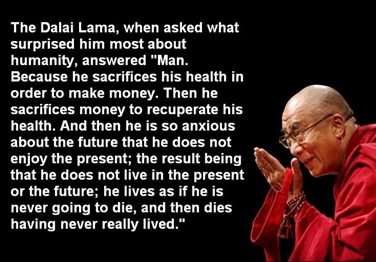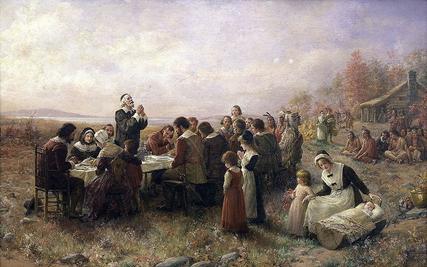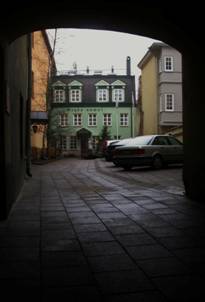
THE VOICE OF INTERNATIONAL LITHUANIA
|
VilNews has its own Google archive! Type a word in the above search box to find any article.
You can also follow us on Facebook. We have two different pages. Click to open and join.
|
Archive for 2011
- Posted by - (1) Comment
Lithuania second in EU by economic growth
The Lithuanian economy expanded by 7.2 percent in the third quarter of the year compared to the respective period in 2010, the European Union’s statistics office Eurostat said. Among the 27 member of the EU, Lithuania is second only to Estonia which posted a 7.9 percent increase in its gross domestic product over the period.
- Bookmark :
- Digg
- del.icio.us
- Stumbleupon
- Redit it
- Posted by - (0) Comment
Donatas Januta: Reply to Olga Zabludoff re Holocaust in Lithuania
Litvaks:
Lithuania’s warriors

Donatas Januta
Dear Olga,
You and I disagree on a number of issues, including the contribution or non-contribution of Jews to Lithuania's economy. But please don't take that to mean that I am not willing to acknowledge real and important Jewish contributions to Lithuania. I wrote and published much of the following material in the Lithuanian language as an article in a Lithuanian newspaper a few years ago. As I send this off to VilNews, we are heading into Thanksgiving, and I wish you and your family a pleasant holiday. I will look forward to continuing our dialogue next week, including about our differences and about our common ground.
- Bookmark :
- Digg
- del.icio.us
- Stumbleupon
- Redit it
- Posted by - (4) Comment
Donatas Januta: Reply to Olga Zabludoff re Holocaust in Lithuania
Litvaks: Lithuania’s warriors

Donatas Januta
Dear Olga,
You and I disagree on a number of issues, including the contribution or non-contribution of Jews to Lithuania's economy. But please don't take that to mean that I am not willing to acknowledge real and important Jewish contributions to Lithuania. I wrote and published much of the following material in the Lithuanian language as an article in a Lithuanian newspaper a few years ago. As I send this off to VilNews, we are heading into Thanksgiving, and I wish you and your family a pleasant holiday. I will look forward to continuing our dialogue next week, including about our differences and about our common ground.
* * *
For 600 years in Lithuania Jews and Lithuanians lived side by side, but separate. Lithuanians were peasant farmers. Jews were urban merchants, traders, craftsmen. Of all European Jews, those of Lithuania interacted the least with the people among whom they lived. When they met, it was almost exclusively in the marketplace. This separation allowed the Lithuanian Jews, who called themselves “Litvakes”, to develop and maintain their unique and rich culture with little outside influence.
But there were times when the two groups consciously and earnestly supported each other for the common good. One of those times was at the beginning of the Lithuanian Republic in 1918-1924. Lithuanian Jews fought and worked for Lithuanian independence, and they also obtained significant autonomy in the country. A Ministry for Jewish Affairs was established. Jews had their own representatives in Lithuania’s Parliament (“Seimas”), and by law the Jewish community was given the power to impose taxes, as well full rights over education and religious matters of their community. This article is a small glimpse into that time when Jews and Lithuanians fought and worked together to achieve all those goals.
* * *
Citizens! Take up arms, donate money, goods, everyting that can help the army, that can strengthen the country in battles against its enemies.
Those are the words, addressed to the Lithuanian Jewish community, in Yiddish and Lithuanian, of Ozeris Finkelšteinas, an attorney in Kaunas, an active member of the Lithuanian Jewish community, a member of the Lithuanian Founding Parliament, on October 9, 1920, after Želigowski’s Polish division invaded Vilnius and threatened the rest of Lithuania.
Jews were among those who, in the 1918-1923 wars of Lithuanian Independence, with their blood and suffering won Independence and freedom for Lithuania. In an honored place in the Kaunas choral synagogue, there used to hang a large black marble plaque, with the names written in gold letters of approximately 60 Jewish youths who had died fighting for Lithuanian indpendence.
One of those names was that of Robinzonas Leizeris, who was killed in the autumn of 1920 in battle with Poles near Druskininkai. Leizeris’ comrade, who fought alongside Leizeris and was captured by the Poles, spoke about Leizeris’ last hours. When it was suggested to Leizeris that they withdraw from the much larger Polish force, Leizeris replied: “The outcome is clear – it’s either death or captivity. . . . I’d rather die than end up in the hated Poles’ clutches.”
All who retreated then continued to fight in the new location: “We fought until it was no longer possible, and so . . . we end up prisoners. They disarm and line us up. We continue to hear thunderous gunfire. Comrade Robinzonas Leizeris has not lost hope and is still shooting. A Polish officer hit by his well-aimed shot fell at our feet. Robinzonas Leizeris was approximately 50 paces from us. Holding his rifle at his chest, his face aflame and aiming at the enemy, he yelled: one, two, three . . . . Furious Polish officers ran towards the unknown warrior yelling ‘pšiakrėv’. Our Robinzonas Leizeris was shot dead by them with their Brownings, and left to lie where he fell.”
* * *
Lithuanian Jews, calling themselves “Litvakes”, towards the end of the First World War, just as Lithuanians, did not wait for compulsory mobilization, but on their own initiative joined partisan groups to defend Lithuania – in the Panevėzys partisan group, 14 Jews fought against the Poles. In 1919 in Joniškis, when Lithuania still did not have its own army, the Jews themselves formed, outfitted and fed a batallion of Jewish volunteers. When mobilization was finally announced, this already formed Jewish batallion was one of the first groups of soldiers of the Lithuanian army.
J. Šapiro, a Jew from Joniškis, in 1934 wrote about the forming of that batallion: “The joint historical fate of Jews and Lithuanians, having dragged the same czarist yoke for centuries, awakened in us Lithuania’s Jews, a consciousness of the same fate for our peoples, and a resolve to win, together, an indpendent nation. . . . I initiated a broad action to recruit Jewish volunteers. For that purpose I visited several places, explaining and persuading, and the Jewish youth came out in droves. . . . Some of those early volunteers fell in battle, and their graves are scattered throughout Lithuania’s fields.
Volfas Kaganas, distinguished in battle multiple times – against the Bolsheviks, against the Bermontists, and again against the Poles – was twice awarded the Vytis Cross for bravery. One of his deeds is described: “On November 23, 1919, in combat against the German Bermontists near Radviliškis junior officer Volfas Kaganas, attacking the enemy in the town, was injured by artillery shrapnel, but he did not abandon the formation. Quickly, he bandaged his own wound, and continued the attack with his corps, in that manner encouraging others. The enemy was ejected from Radviliškis.
Later, Lithuanian Jews established an association of Jewish soldiers who had fought in the wars of Lithuania’s Independence, which in 1933 had chapters in 33 locations. The association had over 3,000 members. Among them were volunteers from the very beginning and participants in the liberation of Klaipėda. 19 Jewish warriors were awarded the Vytis Cross and other medals for distinguishing themselves in battle. Two Jewish Vytis Cross warriors, who were
cut to pieces by the Poles, rest somewhere in the Alytus cemetery. All of Lithuania’s Jewish burials suffered during the German and Soviet occupations, and attempts are now being made to find those two warriors’ burial places.
During the wars of Lithuanian Independence, the Lithuanian army had 9 Jewish officers. Among the first class of graduates from the Lithuanian Military Academy were six Jews: Goldbergas, Goniondskis. Gotlibas, Gensqas, Krisknianskis, and Mogilevskis.
Historian Dov Levin, born in Kaunas, Lithuania in 1925, and living in Israel since World War II, who is, in general, not kindly disposed towards Lithuanians, writes that after World War I, Lithuanian Jews understood and knew that life in Lithuania was better for them than for Jews in the neighboring countries, and for that reason “it is easy to understand their general willingness to serve in the Lithuanian army, and such patriotic associations as the Vilnius Liberation Commettee, and why the students of Kaunas’ Hebrew gymnasium offered themselves as volunteers to serve in the Lithuanian Riflemen’s Association (“Šauliai”) against the Polish legions which were marching towards Vilnius.”
* * *
During the Lithuanian Wars of Independence, supplying weapons to the Lithuanian Army was not an easy task. At that time Lithuania was surrounded by enemies on all sides – Poles, Bolsheviks, Bermontiks, and, of course, Germans who were still there and were the masters of the land. Though Lithuania may have had funds to buy armaments, it was difficult to find anyone who would sell them to Lithuania. Boris Šeinas, a Jew from Kaunas, agreed to support the army on credit, in other words, to risk his economic existence and his life, on the gamble that Lithuania would succeed against its enemies. And so, he provided weapons, horses, wagons, clothing, boots, bread.
In the beginning, the Germans prohibited the Lithuanians from establishing their own army, and a state of war existed between Poland and Lithuania. On one trip Šeinas illegally crossed into Poland to buy some horses for the Lithuanian army. He was herding 25 horses back to Lithuania and the Poles caught him. The Poles grabbed the horses, but Šeinas managed to escape – if he had not, he would have faced a military tribunal and been executed. After hiding out for a week, Šeinas, with his helpers one dark night grabbed the horses from the Poles’ stables and eventually led them into Lithuania. They say that along the way, the Kaišiadoris pharmacist Morkunas, offered Šeinas 7,500 marks for each horse, but Šeinas turned it down and sold all the horses to the Lithuanian Army for the agreed price of 5,000 marks per horse.
One of the founding volunteers of the Lithuanian Army, genereal Vincas Grigaliūnas-Glovackis, himself distinguished in battles, evaluated Šeinas’ and other Jewish merchants contributions to the wars of Independence: “To keep benefical for us contacts with the Germans, to buy up weapons, to maintain secret warehouses with war material, to transport and deliver weapons . . . Šeinas, Zisle, Frenkelis, Aronsonas and others carried out special assignments with true love of their country, placing their live in danger, not begrudging either money or labor.”
Jews also worked in the political arena in support of Lithuania’s Independence. Simon Rozenbaum, having wide influence in Europe’s Jewish community raised and promoted Lithuania’s Indpendence at the Versailles Peace Conference. Also, in the 1919-1920 negotiations between Lithuania and the Soviet Union it was not a coincidence that Lithuania succeeded in getting favorable terms – representing Lithuania, one of the negotiators was Simon Rozenbaum, while the chief Soviet negotiator was the Jew Adolf Yoffe, and his superior was the Litvak Maxim Litvinov, who was from a Jewish family in Byalistok.
The Jews of Lithuania in 1918-1920 contributed financially and politically to the re-establishment of Lithuania as an independent sovereign state. And they also fought and they died as warriors with weapons in their hands, next to their Lithuanian comrades. It is an enormous tragedy, and a most sad tragedy that two decades later, both groups – Jews and Lithuanians – were to suffer greatly, and separately. But for the brief few years at the start of the 20th century, they fought and worked together, shoulder to shoulder.
- Bookmark :
- Digg
- del.icio.us
- Stumbleupon
- Redit it
The land of smiles
- Posted by - (0) Comment

My youngest daughter, then three-year-old Cornelia, with granddad Bruno.
I think people on mother Earth has bright times to look forward to;
times when the world will be managed and developed by the
new type of people, those who are now growing up.
Photo: Aage Myhre.
By Aage Myhre
aage.myhre@VilNews.com
The economic downturn has made more and more ‘experts’ come forward with gloomy predictions for the world's future.
I do not share this pessimistic attitude. I think the crisis is part of a necessary cleansing process. In this way, we live in a very exciting time. The very ‘transition time’.
I think the world’s money power and capitalism as it has been exercised is bad and unfair in many ways. I am skeptical also about many of the other 'isms'. In my opinion, greed and desire for power have defined the various 'isms' and the world for far too long.
Many of the problems they have created have been nurtured by unhealthy egoism. Money has become our god, a deceitful god. Therefore, many countries are struggling today. Many innocent people suffer as a result thereof.
Yet I am optimistic. For I see that a whole new type of people is coming. New leaders. Many of today's children and young people. What I see is forward-looking youngsters with good balance within themselves and their 'other dimension'; their divine origin.
‘The land of smiles’ is under development. The new kids, the new human type, seem to have come to Earth with a special mission: to assist the Earth and its inhabitants in the transition and the 'rebirth' as a planet with higher awareness and better interpersonal understanding.
All truth passes through three stages. First, it is ridiculed. Second, it is violently opposed. Third, it is accepted as being self-evident.
- Arthur Schopenhauer, Germantown philosopher (1788 - 1860).
- Bookmark :
- Digg
- del.icio.us
- Stumbleupon
- Redit it
The land of smiles
- Posted by - (2) Comment

My youngest daughter, then three-year-old Cornelia, with granddad Bruno.
I think people on mother Earth has bright times to look forward to;
times when the world will be managed and developed by the
new type of people, those who are now growing up.
Photo: Aage Myhre.
By Aage Myhre
aage.myhre@VilNews.com
The economic downturn has made more and more ‘experts’ come forward with gloomy predictions for the world's future.
I do not share this pessimistic attitude. I think the crisis is part of a necessary cleansing process. In this way, we live in a very exciting time. The very ‘transition time’.
I think the world’s money power and capitalism as it has been exercised is bad and unfair in many ways. I am skeptical also about many of the other 'isms'. In my opinion, greed and desire for power have defined the various 'isms' and the world for far too long.
Many of the problems they have created have been nurtured by unhealthy egoism. Money has become our god, a deceitful god. Therefore, many countries are struggling today. Many innocent people suffer as a result thereof.
Yet I am optimistic. For I see that a whole new type of people is coming. New leaders. Many of today's children and young people. What I see is forward-looking youngsters with good balance within themselves and their 'other dimension'; their divine origin.
‘The land of smiles’ is under development. The new kids, the new human type, seem to have come to Earth with a special mission: to assist the Earth and its inhabitants in the transition and the 'rebirth' as a planet with higher awareness and better interpersonal understanding.
I feel that these children already understand that today's materialism is not the answer. Some of them seem to have access to gifts of clairvoyance and communication at higher levels.
These children are born with a high degree of natural intelligence, sensitivity and vision. They are creative, and often have easy access to both the left and right brain halves, making them artistically gifted, but also technologically competent and adventurous. As if they represent the universal consciousness.
A very significant aspect of this evolutionary development is that new-people do not keep their abilities and qualities for themselves. It is as if they have come to the planet to share their innate wisdom with others.
I believe that they, by their very presence, will help a lot to experience and understand these new 'vibrations' and thus open up more of their own abilities and potential.
One of the gifts the ‘new-people’ seem to bring with them during this transitional period, is that even today’s people become more aware of who they really are. The inner, the spiritual is already becoming more apparent.
So far in human history, it appears that our physical forms have locked us inside ourselves. The much finer vibrations of higher dimensions have somehow never been let out in free expression. It has always been a gap, a wall, between the material manifestation of the human body and the higher consciousness we all have inside us.
Now a new state, new openness, a new freedom is on its way. In the new situation, many will gain easier access to both material and spiritual 'realms'. It will no longer be as great a need for meditation or concentration, since access to the spirit world is becoming so much more open.
Fear, anxiety, aggression, envy, slander, arrogance, greed and distrust as we know them in today's society will slowly fade away. They will no longer plague mankind.
The new folks will fully understand and be very conscious of own strength and creativity. On who they are. They will be aware that they are different from present days’ people. They will also be confident in themselves, without being haughty or arrogant.
In the first phase of the transformation period, they will increasingly be exposed to insult and aggression from the old folks, but that would worry them little. They are very conscious of where they come from and what mission they have in the creation of the new world.

Dalai Lama's words above describe well our today’s problem. Our lives revolve around money. We do not have the time for or understanding of ourselves and our loved ones. We are not aware of who we are. And because of this lack of awareness, we, the people, have created a planet of sorrow, suffering and stress.
The constant pursuit of money does not let individuals to prioritize their own thoughts, feelings and actions. Fear of not surviving due to lack of resources has led to greed and imbalances. There is much that must be corrected if we are to make a planet where all people are satisfied and happy. But it seems that more and more feel and understand this now.
The new generation of people will find solutions to problems in a whole new way. Our days’ tendency to think in tunnels will be replaced by free thoughts, more creativity. Monetary systems will be replaced by more equitable earnings and distribution models. Greed cultures will evaporate.
Our time’s great advances in information technology have made it incredibly easy to collect and acquire knowledge. The new time will clearly demonstrate how all of this information can best be applied to the progress of humanity. Knowledge will no longer be enough, now it’s time for implementation and action.
The future will be integral. Brain halves and the human spirit will play together as never before. Individuals will find it easier to find their places in a larger whole. New plans will be developed in accordance with the holistic view lines. Two plus two is more than four in the right context.
Within my field, architecture, the new architects and site planners will far better understand that all elements must play together holistically. The new communities being developed will follow the old days of village thinking. It will be developed neighborhoods where people take care of each other. The workplace, school, residential, cultural and recreational activities will be located near each other. Segregation will be replaced by multifunctional communities. Cars will largely be redundant.
Experts from the present, past, will at first have difficulty understanding what is happening. But they will soon see that the old models no longer work. New people will take over their positions, but in an integral, non-selfish way.
Humanity has much wisdom to look forward to in the land of smiles. I think.
All truth passes through three stages. First, it is ridiculed. Second, it is violently opposed. Third, it is accepted as being self-evident.
- Arthur Schopenhauer, Germantown philosopher (1788 - 1860).
- Bookmark :
- Digg
- del.icio.us
- Stumbleupon
- Redit it
![]()

Lithuanian prosecutors have issued a European arrest warrant for the Russian owner of the Portsmouth Football Club in connection with hundreds of millions of dollars in assets stripped from Snoras Bank, the 5th largest in Lithuania.
Prosecutors said they Vladimir Antonov and his Lithuanian partner Raimundas Baranauskas are the main suspects in a pretrial investigation into an alleged fraud and money laundering case that is threatening to destroy two Baltic banks.
REUTERS:
* Russian banker, with partner, suspected of embezzlement, fraud
* Follows seizure of Lithuania's Snoras bank
* Daughter bank in Latvia likely to be liquidated-regulator
* Funds missing from both banks-officials
* People queue at Latvian bank for small withdrawals allowed (Addds arrest warrant for former bank owners, share prices)
By Nerijus Adomaitis and Aleks Tapinsh
VILNIUS/RIGA, Nov 23 (Reuters) - Lithuania on Wednesday issued a European arrest warrant for the Russian businessman whose bank was seized by the state last week after regulators found a hole in the bank's assets and launched a fraud probe.
The collapse of Lithuanian bank Snoras has also led to the suspension of its Latvian daughter company, Krajbanka. A Latvian regulator said the bank would likely be liquidated.
- Bookmark :
- Digg
- del.icio.us
- Stumbleupon
- Redit it
- Posted by - (0) Comment
NASA Would Like to Cooperate with Lithuanian Scientists and Businesses
NASA and Lithuania could cooperate, said Simon P. Worden, Director of the NASA Ames Research Center, paying a visit in the Government of Lithuania last week.
According to Worden, the country's science potential would allow a successful contribution to the projects of NASA.
"Traditionally, NASA cooperates with Russian, European and Japanese space agencies. Yet now, implementing the new space policy of the U.S. President Barack Obama, we are looking for ways to cooperate with non-traditional and technologically advanced partners. Lithuania is known for advanced technologies, especially in the field of small satellites. We are considering cooperation with different universities and companies and we expect to implement joint projects," NASA official said after the meeting with Lithuanian Prime Minister.
- Bookmark :
- Digg
- del.icio.us
- Stumbleupon
- Redit it
- Posted by - (0) Comment
Didier Bertin: Reply to Yves Plasseraud re Holocaust in Lithuania
No more excuses for the policies and provocations of the Lithuanian authorities!

By Didier BERTIN
President of the Society for the Promotion of the European Human Rights Model
I want to thank my (French) compatriot, Yves Plasseraud for taking the time to reply to me. He also mentions in his reply that he had helped the organization of Lithuanian-Jewish events in the early 1990s, a most laudable achievement for which we are all in his debt. But being rooted in an earlier milieu can truly rob one of the perspectives needed to see when unwanted changes occur.
- Bookmark :
- Digg
- del.icio.us
- Stumbleupon
- Redit it
- Posted by - (0) Comment
Donatas Januta: Reply to Olga Zabludoff re Holocaust in Lithuania
Embracing history between Lithuanians and Jews can’t be a one way street

Donatas Januta
Dear Olga,
You are very eloquent in stating your position. But even people of good will and good intentions can have honest differences of opinion, and sometimes are simply wrong. I am glad that you and I agree on the very basic matter of our debate, i.e., that the Holocaust was the worst genocide in European history, and that Jews and Lithuanians both suffered terribly during World War II and its aftermath.
- Bookmark :
- Digg
- del.icio.us
- Stumbleupon
- Redit it
- Posted by - (2) Comment
Didier Bertin: Reply to Yves Plasseraud re Holocaust in Lithuania
No more excuses for the policies and provocations of the Lithuanian authorities!
20 November 2011

By Didier BERTIN
President of the Society for the Promotion of the European Human Rights Model
I want to thank my (French) compatriot, Yves Plasseraud for taking the time to reply to me. He also mentions in his reply that he had helped the organization of Lithuanian-Jewish events in the early 1990s, a most laudable achievement for which we are all in his debt. But being rooted in an earlier milieu can truly rob one of the perspectives needed to see when unwanted changes occur.
What Yves Plasseraud saw at conferences in the early 1990s does not harmonize with what has been happening in Lithuania in the last few years.
As Yves Plasseraud knows Lithuania from period after the end of Communism he had probably witnessed the fact the Lithuanian citizens expelled from USA from the years 1990 because they were war criminals were all left free when they went back to Lithuania after having being stripped of US citizenship. I read and was told that many received hero’s welcomes. What did Yves Plasseraud think of these events?
What does Yves Plasseraud think of the defamation campaign that started from 2006 and proceeds until now against Holocaust survivors? On August 30th 2011, Interpol was sent by Lithuanian authorities to disturb an 86 year old Holocaust survivor and veteran of the anti-Nazi resistance.
I am glad to learn that there exist museums making reference to the Holocaust other than the green house, but the Holocaust was unknown for the Genocide museum when I visited it. And now, there is just one little cell in the basement opened last month after the very campaign by human rights experts that so upsets Plasseraud. The new basement “Holocaust cell” (unannounced on the main floor from any visible place) does indeed mark the Holocaust while distorting or denying completely the important local complicity that led Lithuania to have the highest extermination of all Europe (more than 95%).
Yves Plasseraud tries to excuse the Lithuanian authorities in pretending that the situation is worse in neighbouring countries in the region; this is not accurate and Lithuanian authorities have generated a unique phenomenon on seven lamentable counts:
1―No other countries in the EU have sent the police or Interpol to chase Holocaust survivors because they wrote what they saw during the war and what they wrote in their memoirs or published books.
2―No other countries in EU have sent prosecutors or police to look for Holocaust survivors because they survived by joining the anti-Nazi (i.e. Soviet) resistance during the years of the alliance against Hitler in World War II.
3― No other countries in EU have legalized the Swastika as Lithuania did in 2010.
4―No other countries of the EU threaten of two years of prison for those who do not share its opinion on the Holocaust and on the so called “Soviet genocide of Lithuanians”. This threat is more typical of such dictatorial States as the former the communist countries. Even Hungary, now ruled by a far-right government, will limit in 2012 the threat for similar reasons to the exclusion of educational systems.
5―No other countries of the EU have discontinued or fired professors at university as Lithuania did because they did not agree with the opinion of the government.
6―No other countries of the EU have declared a year of commemoration and honour for members of militias who participated in the perpetration of the Holocaust (let alone for groups like the Lithuanian Activist Front that began the butchery in many locations before the Germans even arrived).
7―No other countries of the EU authorize neo-Nazi parades on the main boulevards of their capital during their National Day.
Yves Plasseraud, as a friend of Lithuania owes to the fine people of this country to abandon apologetics and hold this country to the same high standards he would desire for our own country –France – or any other European country.
Membership of the EU involves rights ― in particular the European subsidies and duties ― in particular in respect of its Charter of Fundamental Rights especially since the treaty of Lisbon signed in 2009.
The European Union is still under construction and has not yet the bodies, which would permit it to efficiently monitor the harmony of the application of democratic rules in each of its numerous member states, but we do think it will come soon. It is vital for the EU to be not only an economic association. Human rights must remain high on the agenda.
For more information on these topics, please see www.DefendingHistory.com, www.OperationLastChange.org, and WWW.EURO-SOCIAL-HR.ORG.
- Bookmark :
- Digg
- del.icio.us
- Stumbleupon
- Redit it
- Posted by - (4) Comment
Donatas Januta: Reply to Olga Zabludoff re Holocaust in Lithuania
Embracing history between Lithuanians and Jews can’t be a one way street

Donatas Januta
Dear Olga,
You are very eloquent in stating your position. But even people of good will and good intentions can have honest differences of opinion, and sometimes are simply wrong. I am glad that you and I agree on the very basic matter of our debate, i.e., that the Holocaust was the worst genocide in European history, and that Jews and Lithuanians both suffered terribly during World War II and its aftermath.
I sincerely try hard to find common ground on the issues under discussion, until I finally have to admit that perhaps on some of them, it is not possible. As I said in my first post in this series, there are some details that we may never agree on, because Lithuanians and Jews each view those events from separate experiences, from a separate history, from a separate reality. Over the years, there has also been inaccurate information disseminated on both sides – some intentionally, some perhaps unintentionally due to inevitable human biases, and some as wishful thinking.
Speaking about your perceived contributions by Jews to Lithuania’s economy, you say if Jews had not been present in Lithuania, the country’s economy may have been even worse. True. But if the Lithuanian’s themselves had been allowed to have a broader hand in the economy, it might have been a lot better, too. That’s also true. We simply don’t know. So, I am not sure that this type of speculation is helpful. In replying to you I was merely speaking of what was, not what might or might not have been.
Let me respond further to your “Logic 101” lesson about the rules of supply and demand. Even in the case of low prices due to the under-demand or over-supply that you refer to, if there is no monopoly and no price-fixing, there is still competition and bargaining, even though it happens at low price levels. My point was that there was no competition, no bargaining, all the buyers had agreed on the same low price. That’s what’s called price-fixing in a monopoly.
Please recall that when I wrote about the Jewish traders all offering the same below-subsistence low price for farmers’ entire year’s labors, I expressly stated that I was not passing judgment on how that situation came about, meaning I was not putting blame on anyone. That would be a separate issue. I was simply responding to your comment, by saying that it is not easy to evaluate the contribution of Jewish merchants to Lithuania’s economy, and that it is generally accepted that monopolies have a negative impact on a country’s economy.
You ask what has changed to alter my earlier favorable impression of Dovid Katz. I thought I illustrated that in one of my previous posts in this discussion, when I referred to Katz’ article with its screaming headline claiming that Lithuania’s vote on Palestinian membership in UNESCO, i.e., Lithuania’s vote in support of Israel’s position, was, according to Katz, simply an example of Lithuania’s “duplicity”. If anything, it was an example of Lithuania’s cowardice in succumbing to pressure from Israel and Israel’s ally the United States. But, if Lithuania had voted against Israel’s position, Katz would then have called it an example of Lithuania’s “anti-Semitism”. Lithuania can’t seem to do anything right, as far as Katz is concerned. Katz has gone from being a respected scholar and is now becoming simply another pamphleteer.
As for Zuroff, I still remember what he said when the Los Angeles Lithuanian Community declined an ill-conceived suggestion by a self-serving publicist to invite some non-existent “Yiddish dancers” to a folk dance festival. Zuroff attributed it to Lithuanian anti-Semitism, and said that it was to be expected, for the Lithuanian émigré community consisted largely of descendants of war criminals.
So Zuroff blames not only an entire ethnic group, but also later generations. Demonizing entire ethnic groups - where have we seen that before? Am I being “ultra-nationalist” when I take exception to that? I can partially understand Zuroff. He has a constituency to satisfy and a mission, and keeping people emotionally worked up rather than viewing things rationally and objectively, is part of his fundraising tactics. But both, Zuroff, and now Katz, are simply sowing more discord between peoples.
Is Irena Veisaitė, who in her post here states she agrees with what I said about Zuroff – is she one of the “far-right ultra-nationalists” in Lithuania that you refer to? Is Yves Plasseraud, who in his article here decries the “demonization” of Lithuania, one as well? Or are they, intelligent, thoughtful, rational and well-informėd people, who sincerely hope for a reconciliation, rather than further discord, between Jews and Lithuanians?
Consider this about the Kaniukai village slaughter. You say that the Jewish partisans attacked a heavily armed village, and that there was a battle. Some of the Jewish partisans who participated in their early memoirs did boast of a “battle” and of “house to house” fighting. No one disputes that whatever happened there, that except for those who escaped, the entire village was wiped out – every man, woman, child, farm animal, and dwelling. But in a January 31, 1944 radiogram, the head of the Soviet partisan movement in that area, Genrikas Zimanas, informed Antanas Sniečkus, the head of the Lithuanian Communist Party, that the partisans had suffered no casualties. This is confirmed by other sources as well.
So, how is it that in this “battle” against this “heavily armed” group, with “house to house” fighting, there were no casualties on the partisan side? What kind of battle could that have been? Wiping out an entire “heavily armed” village and not suffering a single casualty – that’s a miracle akin to the parting of the Red Sea.
The archival records about Kaniukai, mostly Soviet and Polish but some Lithuanian, show that this was an attack on a simple village, like any other village, where a few men might have had some old hunting rifles for self-defense. Many of the victims were burned to death alive in their homes. Others were slaughtered in unspeakable ways. The Jewish partisans who had boasted about the “battle” in their early memoirs, after being questioned about some of the facts, even they backed off from those early claims. This was simply a total criminal slaughter of ordinary villagers who had in the past tried to defend their livelihood against the partisans/bandits. So, Olga, you are simply wrong on your facts.
In assessing the Jewish partisan movement in Rudninkai forest, from which the attack against Kaniukai came, Israeli istorian Dov Levin, a former member of one of those partisan units, explains these kinds of actions by stating that in those partisan units there was “wide-spread social anomie”, i.e., the collapse of the social structures governing society, which included “open hate and hostility towards the local population”. How else could you explain former partisans’ Rachel Margolin’s, Abraham Zelnikow, Zalman Wylozni’s, and Joseph Harmatz’ admitted acts that I cited in my October 26, 2011 post here. Those were and are criminal acts against civilians. Those were not “battles” against Nazis.
You say that the majority of Soviet partisans were not Jewish. I can’t speak for the Soviet partisans on all fronts, but here are some statistics of the ones in Rudninkai forest. The partisan group “For Victory” had 106 Jews out of a total 119 members; “Avenger” had 100 Jews out of a total 106 members; “Struggle” had 58 Jews out of 76 total; and “Death to Facism” had 39 Jews of a total of 60. There were others.
Why are you against investigation of, as you put it, “unproven” crimes? That is the purpose of an investigation – to verify or to find evidence which would either “prove” or “disprove” a crime. If the crime has already been “proven” there is nothing to investigate.
You make the generalized statement that in Lithuania in 1941 there was “inconceivable savagery” when “hate and greed replaced love and loyalty”, as if that applied across the board to all Lithuanians. Yet, previously you agreed that 99.5% of Lithuanians were neither directly nor indirectly involved in the killings. You previously blamed the 99.5% for standing by doing nothing. The Germans announced that anyone harboring Jews would be killed together with their family. And everyone had seen that the Germans were serious about killing. It is a wonder that as many Lithuanians did risk their own lives and those of their families to shelter Jews. What could the others of the 99.5% have done that would have changed the German organized outcome?
There are other points on which you and I disagree – the very definition of what constitutes genocide, the so-called “double genocide” red herring, the June 1941 uprising against the Soviets, but at this point it is not entirely clear what our discussion has accomplished. We seem to have arrived at an impasse.
Saulius Suziedėlis, another contributor to VilNews, says that Lithuanians should embrace the history of 1941. But which one? Do we embrace Irena Veisate and Yves Plasseraud’s version, or Zuroff and now Katz’ version? That’s where the disagreements lie. I personally find a lot to embrace in Dov Levin’s version, who is not only a historian, but who also was there.
You say you want the history of the Holocaust presented truthfully. So do I. But it should not be a one way street. What I would also like to see, is to have the Soviet inflicted tragedies, including the “Kaniukai” slaughter, be recognized and acknowledgment in the West for what they were, just as the German inflicted tragedies have been, and to have their perpetrators judged as the criminals that they were and are. And I don’t see how that is disrespectful of the Jewish dead or the Jewish survivors, or how it has anything to do with the Holocaust.
- Bookmark :
- Digg
- del.icio.us
- Stumbleupon
- Redit it
Thanksgiving
- Posted by - (1) Comment

The chess game that Pedro’s father made by his own hands.
Photo: Aage Myhre.
My friend, a journalist with the name Pedro, from Chile, gave me this chess game in 1987. At the end of the 1970s he had become victim of the military rule of Dictator Augusto Pinochet in his home country. Pedro had written some slightly critical comments about the General in his newspaper, and was given 24 hours to disappear out of Chile. The chess game was the only thing he brought with him in the backpack, except the bare necessities of clothing and food. It was his father who had carved the beautiful pieces out of wooden blocks, and the game was, therefore, the dearest object Pedro owned. He had over some time come to live in political asylum in Norway and had lived in Oslo for a few years when I met him. After a time of acquaintance he gave the chess game to me. He explained the reason: "You are the first and only Norwegian I have been able to communicate with, the only one who has shown me respect and interest since I came here."
The chess game I got from Pedro is standing here, next to me. Just to look at it makes me think. I think of a father who sat for months and cut out each individual shape very accurately and carefully from pieces of wood he had collected. I know that Pedro had been seeking asylum in Norway because he had told the truth about the abuser Pinochet. I know he spent several years in Norway without being met with genuine interest and love. The fact that my nation’s people, so quick and clever when it comes to aid and support of other peoples, not always is very good at communicating face-to-face with people who desperately need someone to talk to.
I'm glad I could play a role in Pedro's life. I am very grateful for the gift he gave me. The dearest object Pedro owned has become extremely dear to me. For all that it represents and communicates.
Thanksgiving Day is Thursday 24 November

The First Thanksgiving at Plymouth.
By Jennie A. Brownscombe. (1914).
- Bookmark :
- Digg
- del.icio.us
- Stumbleupon
- Redit it
VilNews e-magazine is published in Vilnius, Lithuania. Editor-in-Chief: Mr. Aage Myhre. Inquires to the editors: editor@VilNews.com.
Code of Ethics: See Section 2 – about VilNews. VilNews is not responsible for content on external links/web pages.
HOW TO ADVERTISE IN VILNEWS.
All content is copyrighted © 2011. UAB ‘VilNews’.

 Click on the buttons to open and read each of VilNews' 18 sub-sections
Click on the buttons to open and read each of VilNews' 18 sub-sections 


















.jpg)



